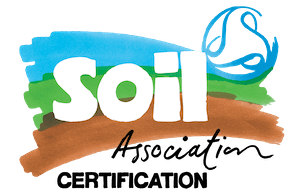Guide 2025
Your Guide To Enhanced Traceability:
Reduce Costs, Drive Growth and Avoid Penalties
Traceability isn’t just about compliance - it’s the foundation of a resilient, efficient, and sustainable supply chain. In fact, 94% of businesses expect global traceability to become even more critical over the next three years. As regulations tighten around the world, companies must gain full visibility into their supply chains - not only to stay compliant, but to unlock operational efficiencies and protect their competitive edge.
Featuring guidance from:







Your Guide To Enhanced Traceability: What to Expect








Packed full of insights and advice from our experts and partner network, this guide is designed to answer the most pressing questions we hear from our customers in regards to the EU Deforestation Regulation (EUDR) compliance and traceability, as well as provide you with the guidance to not only avoid penalties, but benefit from incoming regulations.
It is aimed at those who already have a good understanding of their EUDR obligations and are considering how the changing regulatory landscape will impact their internal business processes. It is ideal for those building business cases for EUDR platform implementation, especially where different departments across an organisation will be impacted and involved in traceability.
Download Your Free Guide Today
Navigate Compliance and Build Resilient Supply Chains
As global supply chains come under increasing scrutiny, regulations like the EU Deforestation Regulation (EUDR), the Corporate Sustainability Due Diligence Directive (CSDDD), and the Corporate Sustainability Reporting Directive (CSRD) are reshaping the way businesses operate. These regulatory frameworks demand verifiable traceability, deforestation-free sourcing, and robust due diligence to ensure that supply chains are sustainable, transparent, and ethically managed. Our comprehensive guide explores how to prepare for and comply with these landmark EU sustainability regulations as well as benefit from increased transparency.
Beyond ticking compliance boxes, traceability is now central to supply chain risk management, product safety, ethical sourcing, and climate-related impact reporting. In the context of the EUDR, traceability means being able to pinpoint the exact origin of commodities like timber, cocoa, palm oil, soy, coffee, and rubber - ensuring they do not contribute to deforestation or forest degradation - and managing the risk of product mixing during manufacturing processes. Without robust traceability infrastructure, organisations risk gaps in data, inaccurate reporting, and non-compliance with fast-approaching enforcement deadlines. By introducing traceability today you can not only protect your business, but also boost your bottom line.
"Implementing robust due diligence and traceability systems lays a foundation for regulatory compliance, in relation to the laws such as the EU Deforestation Regulation, but also others that relate to human rights due diligence, corporate sustainability reporting and the growing number of green claims (anti-green washing) laws. However, such actions go beyond regulatory compliance, by creating structures for companies to understand their impacts and to facility the flow of sustainability-relevant data along value chains. Taking a proactive approach to implementing due diligence and traceability systems enhances a company's reputation and trust with stakeholders, inevitably opening new market opportunities by aligning with global sustainability initiatives."
Preferred by Nature


